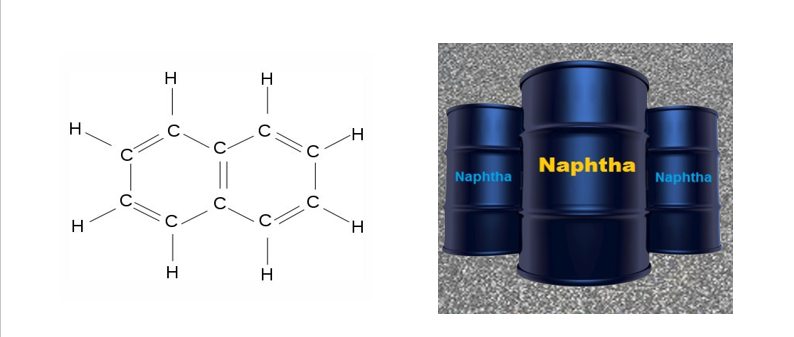NAPHTHA is a complex combination of hydrocarbons produced by distillation of crude oil. It consists of hydrocarbons having carbon numbers predominantly in the range of C4 through C11 and boiling in the range of approximately minus 20°C to 220°C (-4°F to 428°F).

Naphtha is a flammable liquid hydrocarbon mixture. Mixtures labelled naphtha have been produced from natural gas condensates, petroleum distillates, and the distillation of coal tar and peat.
In different industries and regions naphtha may also be crude oil or refined products such as kerosene. Mineral spirits, also historically known as “naphtha”, is not the same chemical.
Uses
Naphtha is used to dilute heavy crude oil to reduce its viscosity and enable/facilitate transport; undiluted heavy crude cannot normally be transported by pipeline, and may also be difficult to pump onto oil tankers. Other common dilutants include natural-gas condensate, and light crude. However, naphtha is a particularly efficient dilutant and can be recycled from diluted heavy crude after transport and processing. The importance of oil dilutants has increased as global production of lighter crude oils has fallen and shifted to exploitation of heavier reserves.
